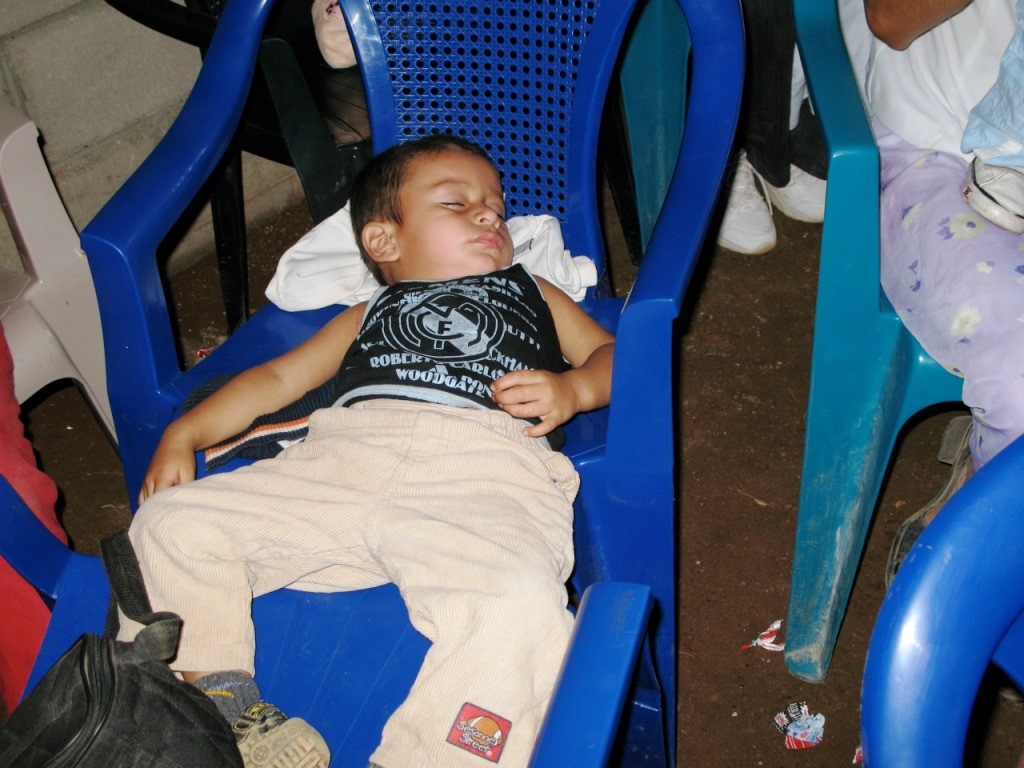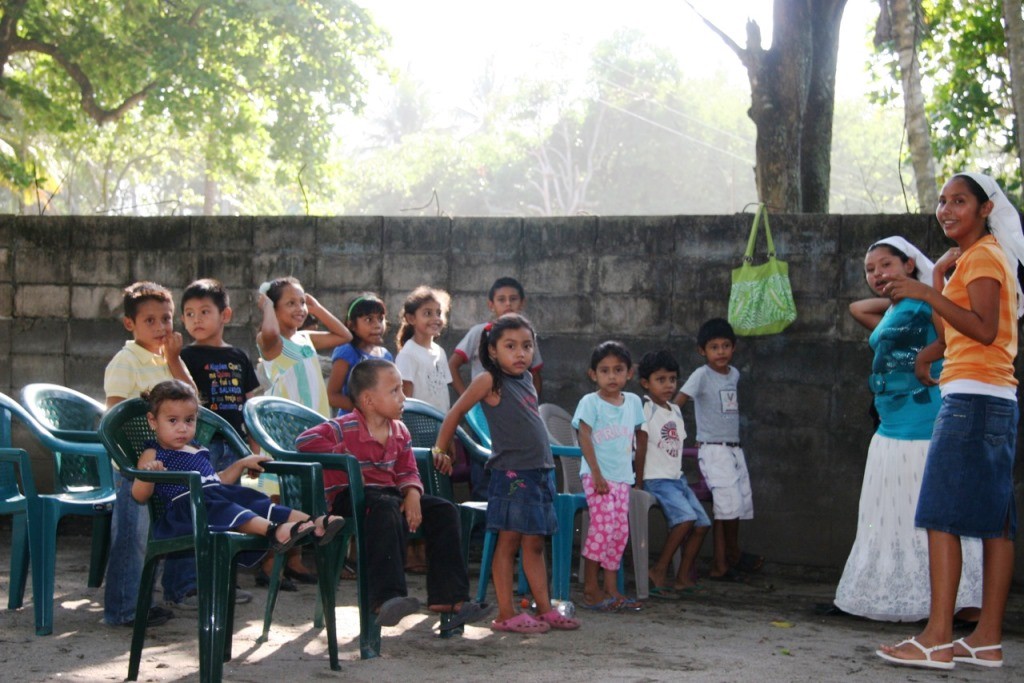THE EVER-PRESENT PLASTIC CHAIR
We are barely off the plane until our first stop at our sister community to check in with our scholarship recipients. After the smiles and warm embraces, what is the first thing their moms and abuelas do for us? Bring the plastic chairs from their very humble homes to the outdoors for us to visit with them.
We go visit our fisherman friend and his family living in a lean-to along the beach. What is the first thing he does? Unlocks the block storage shed where he keeps his boat motor and brings out the stacked plastic chairs for us. Being offered a plastic chair is a sign of hospitality in El Salvador. You are welcomed first with a chair followed shortly thereafter by a large fresh coconut and straw to drink its refreshing water.
Like most things in developing countries, there are few choices and limited financial resources to use for those choices. There are few places to purchase the choices. And the selection has to serve many purposes. Enter the plastic chair.

The plastic chair is the great equalizer across socio-economic groups: wealthy land-owners and poor campesinos alike use it. Everyone – I mean everyone – uses the plastic chair, and everywhere – I mean everywhere – you go in El Salvador, you see the ubiquitous plastic seat. It isn’t only individual families who own them, but institutions including government offices, museums, schools, courthouses, airports, shopping centers, churches, prisons, restaurants, and hospitals all utilize the plastic chair.
You find them located and used both inside as well as outdoors. Yes, it is as common to find plastic chairs inside a private home, as it is outdoors, on rooftop terraces, or along the side of a rural stream. Besides hammocks, it is the primary seating available in the places we visit.
People seem to have primarily one basic size of them, so when attending a very long worship service, the children just dangle their little legs with no hope of reaching the ground. The very little ones can stretch out between two chairs facing each other and nap in the heat. They also seem to be available in one or two basic styles, and it is NOT the comfy lean-back Adirondack–style. No, it is the basic erect-back (some have rounded backs) with arms. Most of them are the usual white, but some are colored.
Plastic chairs have their benefits, with affordability and availability probably being at the top of the list. And in a country that is dusty and dry for half the year followed by torrential rains for the other half, they wipe off easily. They could be easily cleaned although when visiting during the dry season, those chairs were just constantly dusty and dirty. Hosing them down is not an option. In fact, I am not sure I have ever seen a hose in any of my visits to El Salvador. That’s not to say there are none. Perhaps I never really noticed. We just tend to focus our visits on families who lead more humble lives without electricity or indoor plumbing. Water is a valuable resource that has to be carried from miles away in jugs on one’s head just for drinking and daily needs. Washing chairs is not an option.
You can place the chairs in any arrangement you choose: in lines for worship services facing an altar; in a queue waiting your turn while holding your plastic number at a government office; in circles for conversation; in an elongated arc while watching a sporting event. The possibilities are endless.

Another benefit to the chair is their manueuverability. Face it; they are light. A young child can easily move one. We all carried our chairs from the community center to the soccer field when we were visiting a campesino community. It was perhaps a 1/2 mile away, and we did it effortlessly.

Its stacking advantage works out great when the chairs need to be brought inside a one-room home or into a small area for safekeeping. Remember I mentioned earlier about the fisherman unlocking his block shed to get out the plastic chairs? Theft is a real problem in El Salvador among the poorest of people. I am not talking tourist theft. I mean theft with one another. I remember being shocked to hear that even those families living in palm frond lean-tos will steal those plastic chairs from their next door neighbors as soon as their backs are turned. One of our friends was hired by a woman to guard her summer home she rarely uses in order to prevent the neighbors from stealing its contents including – yes–the plastic chairs! He or his wife was required to stay on the premises 24/7 as a crime deterrent.
The down side of the chair is sitting in it for long periods of time; it is just plain uncomfortable. There are no ways around it. It doesn’t mold to your body. There are no cushions. It is a case of butt against unforgiving, hard plastic. When you are required to sit on it for an all-day government queue, it is maddening, frustrating; you just want to scream. If you get up, you risk losing your place in line. At times doing three-hour interviews on the chair in 100- plus degree temperatures of the tropics, I think the sweat sliding off my legs is the only thing that kept me awake.
We are meeting a family for the first time who was not expecting us to visit. Nevertheless, the dad stops what he is doing and goes into his one-room dwelling. Soon five children appear carrying out a stack of plastic chairs and a rag to wipe them off for us. Poor can’t begin to describe this family’s living conditions. The chickens peck at our feet, and I position my chair to keep an eye on the snorting hog which is tied far too close for my comfort. Yet their gracious offer of a place to sit and visit indicates they are genuinely pleased that we stopped to visit them. We soon find ourselves traipsing off to watch barefoot children play soccer. Why barefoot? We are told that they are carrying their flipflops in their hands while they play because if they put them down on the sidelines, someone might steal them.
I’m sitting tight. I don’t want to lose my chair.



